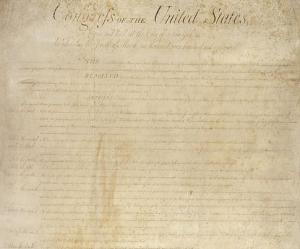Proverbs 29:7 says, “A righteous person knows the rights of the poor.” Unfortunately, because they knew those rights back then, God did not spell them out in writing for us. Don’t you wish we had that list?
(And even if God did give us a list of those rights, would we be willing to accept what God said to people in the Late Bronze Age? Or would we dismiss what God said to them on the grounds that times have changed?)

- Exodus 22:25, Leviticus 25:35-37, and Deuteronomy 23:19-20 all forbid charging interest to a fellow Israelite who is financially destitute. These verses do not forbid commercial loans. That’s why it was OK to charge interest to non-Israelites; such loans would always be commercial loans. What God forbids is charging interest on food or necessities, making profit off of a fellow Israelite’s poverty.
- In Deuteronomy 24:6, God makes it illegal to require anything vital for survival as collateral to be repossessed, particularly their means of production. Today, a car might fit this definition.
- In Deuteronomy 24:10-13. God protects the privacy of the poor by forbidding the creditor to enter a house to obtain collateral. God also makes it difficult to use the coat or bed in which one sleeps for collateral (see also Exodus 22:26-27), by requiring the creditor to return the item every night. And only in Deuteronomy 24:17 is the widow’s garment explicitly forbidden as collateral under any circumstances.
- Deuteronomy 24:14-15. Withholding wages is another forbidden means of violating the rights of the poor. See also Leviticus 19:13: “The wages of a hired servant shall not remain with you all night until morning.” Deadbeat employers steal their employees’ labor this way. Deadbeat corporations steal the use of their suppliers’ money this way. Even a conservative such as Rushdoony the theonomist writes, “Work must be promptly paid, or it is theft and should be prosecuted as such.”
- Deuteronomy 24:17, Exodus 22:21, and Leviticus 19:33 all remind us not to oppress the alien or the orphan, depriving them of justice. The meaning of “oppression,” which is best described as “coercion” or abuse of power, will be discussed in a post next week. Israel’s experience in Egypt is cited in the Torah as a prime example of oppression. The issue of whether the calls for equal justice for aliens in the Torah are applicable to today’s illegal aliens is a subject I have addressed in my previous post (http://www.patheos.com/blogs/tomhobson/2017/11/immigrant-hebrew-law/).
- Deuteronomy 24:19-21. Leaving part of the harvest for the poor is also in the Holiness Code (Leviticus 19:9-10, 23:22). It was a way of giving the poor a chance to harvest for themselves. It required generosity on the part of the landowner, and offered productive work for those who were in need. The salvaging of unwanted food from supermarkets and restaurants to feed the poor, the salvaging of clothes and other goods by resale stores, and the salvaging of recyclables from trash, can all claim Biblical precedent in this law. But the heart of this law is the requirement that the producer of food must set aside part of their potential profit, so that those in need (who are willing to labor for it) can also earn their living.
Did the poor have other rights that have not been spelled out in the Hebrew Bible? We have no way of knowing for sure, and we must be careful about adding rights to this list without sufficient Scriptural warrant. But the commands we have identified above are enough for starters. They give us examples of God’s passion for justice expressed in specific actions.















